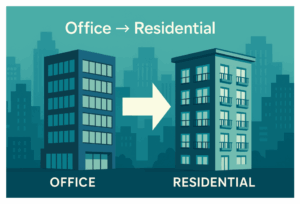Welcome to our comprehensive guide on Triple Net Lease (NNN), designed for beginners who are keen to understand this vital aspect of commercial real estate. This article will explain what NNN means in accounting, explore its advantages, differentiate it from absolute net leases, and provide a simple way to calculate it. Let’s demystify NNN leases together!
What Does NNN Mean in Accounting?
In accounting, a Triple Net Lease (NNN) refers to a lease agreement where the tenant is responsible for all costs associated with the property they are leasing. This includes three main expenses: property taxes, building insurance, and maintenance costs. Unlike other lease structures, NNN leases transfer the burden of these expenses from the landlord to the tenant.
What is the Advantage of NNN?
The primary advantage of a Triple Net Lease for landlords is the reduction in financial responsibilities. Since tenants cover most expenses, landlords enjoy a more predictable income stream. For tenants, NNN leases can mean lower rent payments and more control over the property’s maintenance and appearance.
Difference Between Absolute Net and NNN
Absolute net leases are often confused with NNN leases, but they’re not quite the same. In an absolute net lease, the tenant takes on even more responsibilities, including structural repairs. In contrast, NNN leases typically don’t require tenants to handle major structural issues.
What Does NNN Mean?
The term “NNN” has a completely different meaning outside of real estate, often used in informal slang. However, in the context of leases and real estate, it strictly pertains to the Triple Net Lease structure.
How to Calculate a Triple Net Lease
Calculating a Triple Net Lease is simpler than it sounds. Here’s a step-by-step approach:
- Determine the Base Rent: Start with the agreed-upon base rent for the property.
- Add the Three Nets: Calculate the total yearly costs of property taxes, insurance, and maintenance. Divide this by 12 for a monthly figure.
- Combine the Costs: Add the monthly cost of the three nets to the base rent. This gives you the total monthly expense for the tenant under a NNN lease.
For example, if the base rent is $2,000 per month, and the monthly costs for taxes, insurance, and maintenance are $300, $200, and $100 respectively, the total NNN lease payment would be $2,600 per month.
Summary
In conclusion, Triple Net Leases offer a unique structure in commercial real estate, benefiting both landlords and tenants in different ways. By understanding what NNN means in accounting, its advantages, differences from absolute net leases, and how to calculate it, you can make more informed decisions in the real estate market.
For more insights into real estate and financial terms, visit our website.




